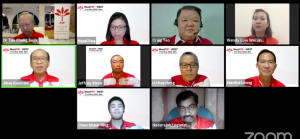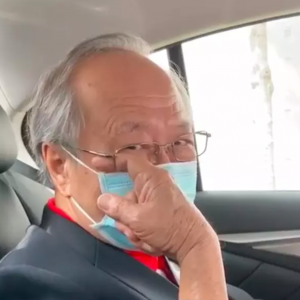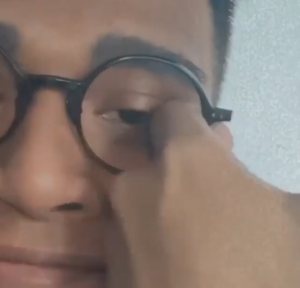Written by: Aretha Chinnaphongse and Jillian Colombo
Singapore — The People’s Action Party (PAP) has been referred to by The Economist as a “slick political machine”, having held power since 1965. In the 2015 General Election, it won almost 70% of the popular vote.
Amidst Covid-19 and the enforcement of safe-distancing measures, gone are the days where crowds could gather to rally for their favourite candidates and political parties.
With new rules and limitations for parties to campaign, social media and online rallies take precedence over physical ones. It is now more so than ever before that social media plays a huge role in the elections.
What does this mean for the Opposition parties? With more arenas to publicise their ideas, does this mean that the gap has narrowed between the PAP machinery of state media and the Opposition to appeal to a larger range of voters?
In this General Election, a wide scope of technological platforms has been used by parties. Applications such as Facebook, Twitter, Zoom and live broadcasts on not just national television but online as well have been utilised. For example, the Progress Singapore Party (PSP), headed by former PAP member Dr Tan Cheng Bock, has engaged netizens in “first of its kind” MeetPSP webinar sessions on Zoom during which several party members discuss its plans and visions.

Meanwhile, Dr Tan himself has gained traction for his Instagram page with colloquial and slang terms such as “hypebeast” and “woke” to appeal to millennials who use the application. He has been described as an Instagram sensation among youths.
Dr Tan wrote recently: “I just woke up but it has the same meaning. I know… if you see me at a walkabout today, say hi and tell me I’m woke.”

Similarly, a video of him showing that his spectacle frame does not have lenses also garnered attention, with many people forwarding his Instagram Stories post and copying him.

Other Opposition parties have also taken to social media to host online rallies.
The Workers’ Party has a “Hammer Show” to share its policies and perspectives on certain topics like elderly care, climate change and inequality in Singapore. These shows managed to garner more than 40,000 views per video.
The WP also has an “At Home” series. This shows a more personal and relaxed side of its candidates, including respected party Chairman Sylvia Lim and and the popular Nicole Seah. These reflect a more familiar and relatable persona compared to all the seriousness in rallies.
Within the rules spelt out for e-campaigns and rallies, Opposition parties have been creative with the ways they have been using social media and technological platforms to appeal to more voters.
The Covid-19 crisis has thus enabled not only parties to transition to online publicity but also voters to search online for more information. This offers the Opposition parties more flexibility and range for them to spread their ideas, hence narrowing the gap in the spaces between them and the PAP.
Undeniably, the PAP still has the monopoly of power over the Opposition parties even though the gap has narrowed. If we focus purely on the media itself, which is a huge mechanism and machinery especially so for this election, the PAP definitely dominates the Opposition.
Indeed, this Covid-19 election has pushed the Opposition to be more tech-savvy and to use social media for interaction with their voters. However, this is not limited to the Opposition parties. The PAP has also come up with its own programmes for outreach, such as Straight Talk, which has featured Mr Tharman Shanmugaratnam. In terms of the number of people that are reached online, it is also dominant. We see this if we compare the following of the various parties on perhaps the most popular social media platform for this election — Facebook. The PAP has approximately 207,000 following its page and their strongest competitor, the WP has a little more than 137,000.
Additionally, it is a given that the PAP will definitely gain greater exposure through all media outlets because it has all along been the ruling party. This holds true for both mainstream media and independent ones. The same cannot be said for Opposition parties. Smaller Opposition parties lose out in this area because they tend to be overshadowed, neglected and under-reported by the media.
Being online also has its drawbacks for the Opposition. The older generation who may not be technologically savvy or the lower-income individuals who may not have as much access to the Internet will not be as engaged online. The amount of new knowledge is far less compared to those who can afford to be online more consistently. This is important because this means that, for one, their exposure to the different parties is dramatically less compared to their counterparts. They are also unable to hear in detail what the plans of the Opposition are, should they be elected.
This means that PAP definitely has the upper hand when it comes to these individuals, who will look at the PAP’s legacy and history as an affirmation that the status quo should not be changed. This perhaps holds even more truth in the Covid-19 climate we live in, where fear and uncertainty might only be exacerbated if there is regime change. This, combined with the unfamiliarity with the Opposition, will compel this demographic to stick with voting for the PAP.
In essence, it is safe to say that even though the gap between the PAP and the Opposition parties has diminished when we look at the machinery utilised, the PAP still has the upper hand. It’s long historical legacy and online presence has enabled this. /TISG



